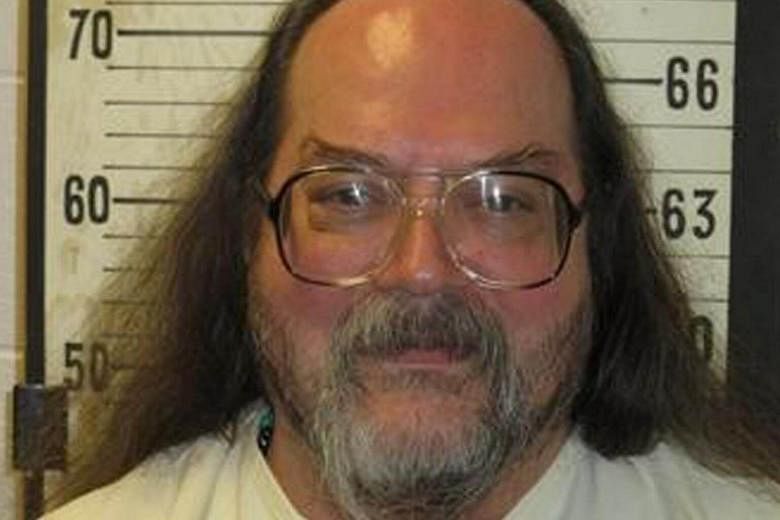NASHVILLE, TENNESSEE (REUTERS, AFP) - The US Supreme Court on Thursday (Aug 9) denied a last-ditch petition seeking to halt the execution by Tennessee of a man convicted of the 1985 rape and murder of a 7-year-old girl he was babysitting.
The decision cleared the path for the lethal injection and came just hours before the state was scheduled to put to death Billy Irick, 59, at 7pm CDT (0000 GMT) at the Riverbend Maximum Security Institution in Nashville.
The execution would be the first in the state since 2009 and the 15th this year in the United States.
Lawyers for Irick, who has been on death row more than three decades, said he has suffered from psychosis for his entire life and putting him to death would violate legal norms barring the execution of people with severe mental disorders or disabilities.
He was convicted of raping and strangling Paula Dyer in Knoxville. Irick had been a boarder in the home where the girl lived with her mother, stepfather and siblings.
Irick's lawyers have argued for nearly 20 years that his original counsel, who no longer represents him, failed at his murder trial to present a history of violent and psychotic behaviour, which included Irick being institutionalised as a child.
Tennessee state prosecutors have said Irick knew what he was doing was wrong and is competent to be executed.
Irick and other death row inmates are part of a separate lawsuit that seeks to block Tennessee's lethal injection mix, which contains the sedative midazolam.
The valium-like drug has been used in executions in other states, a few of which were botched.
Midazolam does not achieve the level of unconsciousness required for surgery and is unsuitable for lethal injections, lawyers for the inmates have argued.
Irick's lawyers said his execution should be halted to give an appeals court time to render a decision on that matter.
In the only dissenting vote, Supreme Court Justice Sonia Sotomayor said that if midazolam does not work, an inmate could suffer harm in violation of constitutional protections against cruel and unusual punishments.
"Medical experts explained in painstaking detail how the three-drug cocktail Tennessee plans to inject into Irick's veins will cause him to experience sensations of drowning, suffocating, and being burned alive from the inside out," Sotomayor wrote.
"If the law permits this execution to go forward in spite of the horrific final minutes that Irick may well experience, then we have stopped being a civilised nation and accepted barbarism," she added.
Three out of 14 executions in the US this year have employed midazolam, according to the Death Penalty Information Centre.
But the drug has been the subject of multiple legal challenges.
Ohio halted executions in 2014 after the botched execution of Dennis McGuire using midazolam. The prisoner appeared to suffer for several minutes before dying.
A federal appeals court in 2017 granted Ohio permission to resume executions, after officials increased the dose of the drug by a factor of 50.
Meanwhile, the state of Nevada last month postponed an execution after midazolam-manufacturer Alvogen successfully sued to stop its product from being used in executions.

